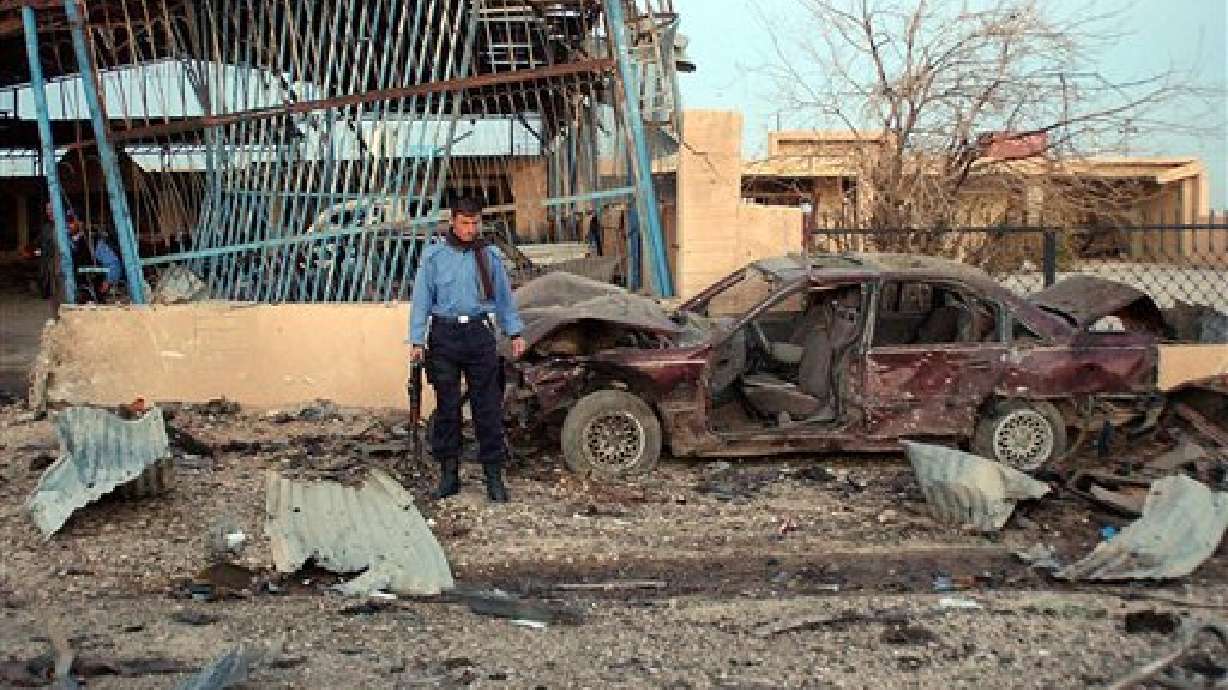Estimated read time: 2-3 minutes
This archived news story is available only for your personal, non-commercial use. Information in the story may be outdated or superseded by additional information. Reading or replaying the story in its archived form does not constitute a republication of the story.
Carole Mikita ReportingSeveral news agencies, including NBC News, are now calling the conflict in Iraq, civil war. The Bush administration and the Iraqi government disagree.
Sean McCormack, Spokesman, State Department: "I know there's been a lot of talk about Iraq and civil war, especially today. It's not our view and more importantly it's not the view of Prime Minister Maliki."
Some Utahns in a position to know agree and others disagree with the phrase 'civil war'. Carole Mikita talked with a filmmaker and an historian to get some perspective on this latest phase of the conflict.
Whether you believe this is simply semantics or what has been going on for some time. Both of these gentlemen believe our troops need better information about the culture, the religion and the history of the region.
What should we call this conflict? American generals in Iraq have suggested it may become, what retired generals at home are saying is civil war.
Dodge Billingsley, Director, 'Combat Films': "Iraq is a country that's very much in flux right now and it's been said that the US is even one component of a multi-sided civil war."
As a documentary filmmaker, Billingsley has covered many wars, including Iraq's. The U.S. military invites him to speak to troops headed in. He says many fear if the U.S. pulls out, the Kurds in the north would declare independence, drawing Turkey into the conflict. Iran has influence in the south with the Shias, then Sunnis would react, perhaps involving the Saudis.
Dodge Billingsley: "If there's one thing that can be said for the US in the midst of this civil war is that we are keeping it, in my opinion, from becoming a larger regional conflict. But it goes back to, I know for people in America, is that worth an American life? I don't know."
Prof. Peter Sluglett, a Middle East historian, disagrees that this is civil war.
Peter Sluglett, Ph.D., Middle East Historian, U. of U.: "Although this is very dreadful indeed, it is not an all-out war of the A's against the B's. A greatly inflated Northern Ireland, in which a proportion or a part of the so-and-sos is mobilizing itself against the such-and-such's, and vice versa, but by no means all."
He believes neighboring countries are the key to opening the door for an American troop withdrawal.
Prof. Sluglett: "It is also important to say that it is not in the interest of Iran or Syria to have chaos in Iraq, it does not help them. These regimes are not themselves as firmly anchored as we might think from here."
Professor Sluglett believes that renewing diplomatic relations with both Iran and Syria will be one of the suggestions to come out of the bi-partisan committee headed by former Sec. of State James Baker.









